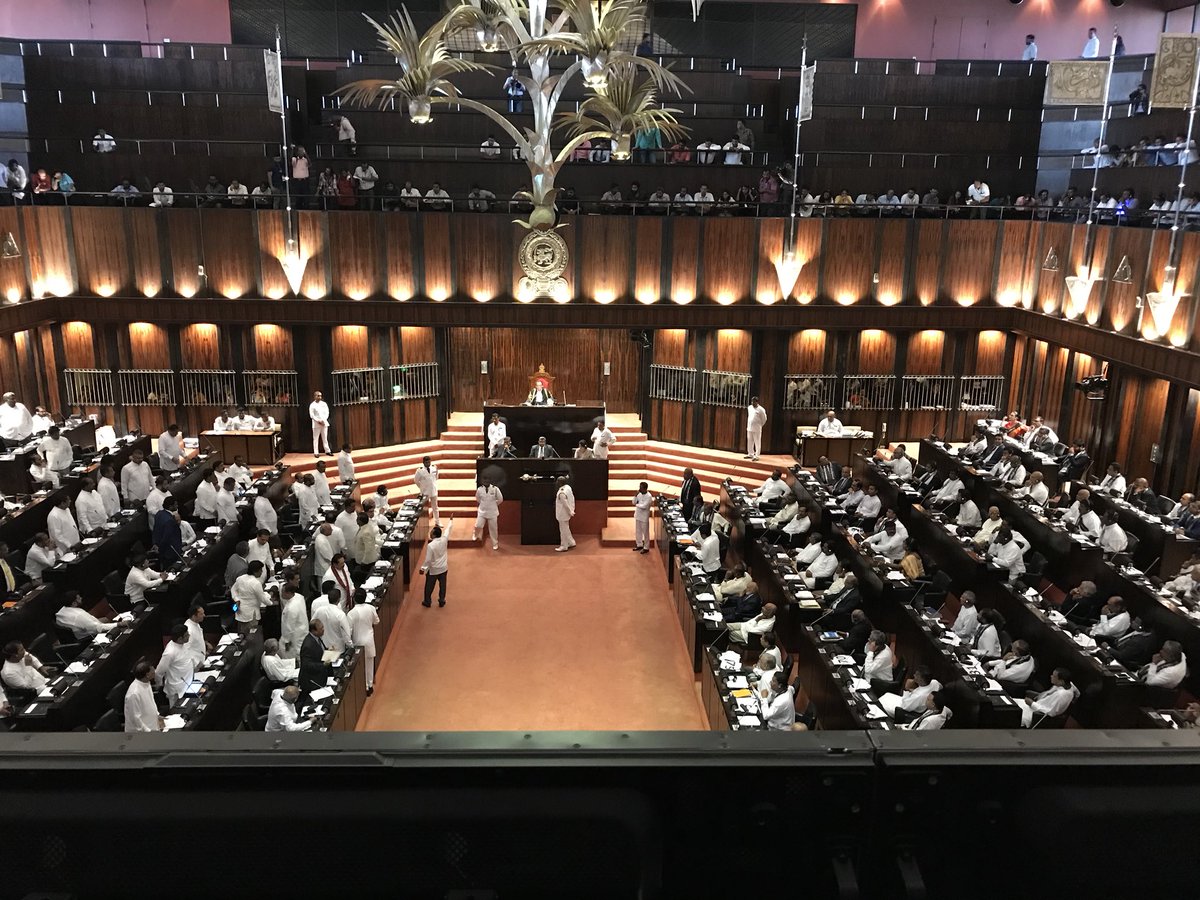
Sri Lanka’s parliament has voted through a bill to establish yet another mechanism to look examine “Unity and Reconciliation” on the island, despite a range of Tamil parliamentarians voting overwhelmingly against the move.
The bill mandates the establishment of the ‘Office for National Unity and Reconciliation’ which would consist of 11 members approved by the Sri Lankan government.
It comes almost 15 years since tens of thousands of Tamils were massacred by the Sri Lankan state, with not a single person having been held accountable since the killings. Successive Sri Lankan governments, including the current one, have repeatedly rejected Tamil calls for an international accountability mechanism.
The new office will reportedly consist of 11 members, of which one member would be nominated by the justice minister and appointed by the president, while the president would appoint the 10 other members on the minister’s recommendations.
The bill was voted through with a majority of 48 votes, whilst 9 parliamentarians – all Tamil – voted against the move.
Those who voted against the bill were the Tamil National People’s Front (TNPF) MPs GG Ponnambalam and S Kajendran, Tamil Eelam Liberation Organization (TELO) MPs A Adaikkalanathan, G Karunakaran and S Noharathalingam, People's Liberation Organisation of Tamil Eelam (PLOTE) MP D Siddarthan, and Ilankai Tamil Arasu Katchi (ITAK) MP Shanakiya Rasamanickam.
“Listening to the speech made by the Honourable Minister of Justice this morning would make it impossible for us to support because the minister's remarks on his notion of reconciliation shows that he's clueless,” Ponnambalam told parliament.
His idea of reconciliation is one of majoritarianism, is that Sri Lanka is a Sinhala Buddhist country, and that nobody else must assert their identity at any point. That whatever that Sinhala Buddhist nation believes must go and must stand. Nobody else can have any other opinion.
Ponnambalam went on to state,
“So it is in that spirit that the minister made comments with regards to the existence of political parties that have ethnic names to it like the Tamil National People's Front, like the Tamil National Alliance, like other Tamil parties. He makes these comments saying that those parties must also not be allowed to exist.”
“Now why did we exist? Why did we have to identify ourselves as Tamil and not be part of this larger identity or common identity? Because Sri Lanka from its very inception, even though you had various names, calling this island those names in reality, practised simply as majority, because your intent was to have a Sinhala Buddhist agenda and for the state to essentially serve the interests of only the Sinhala Buddhist. Everybody else had to be subservient. They had to keep their mouth shut. And if they were to assert their identity, then they should not have a place. They are seen as terrorists, or they are seen as enemies that needs to be contained. So it is in that backdrop, honourable presiding member that you went from this so-called Ceylonese identity initially, then it became a Sri Lankan identity, that you had the non-Sinhala Buddhists essentially realising that they don't belong to that identity, because that identity in effect, is only Sinhala Buddhist. It is not Sri Lankan as a common identity. And it is for those reasons that we began to exist.”
See more of his remarks below.
Following the Honourable Minister of Justice's remarks this morning, it would be impossible for us to support him. The minister's remarks about his notion of reconciliation show that he is clueless. His idea of reconciliation is one of majoritarianism, asserting that Sri Lanka is… pic.twitter.com/AC4PY6pve5
— Manthri.LK_Watch (@ManthriLK_Watch) January 9, 2024
We need your support
Sri Lanka is one of the most dangerous places in the world to be a journalist. Tamil journalists are particularly at threat, with at least 41 media workers known to have been killed by the Sri Lankan state or its paramilitaries during and after the armed conflict.
Despite the risks, our team on the ground remain committed to providing detailed and accurate reporting of developments in the Tamil homeland, across the island and around the world, as well as providing expert analysis and insight from the Tamil point of view
We need your support in keeping our journalism going. Support our work today.
For more ways to donate visit https://donate.tamilguardian.com.

